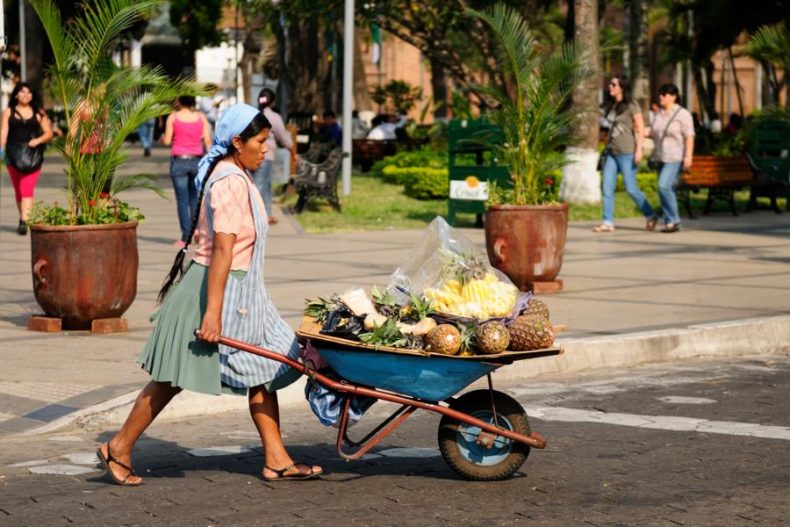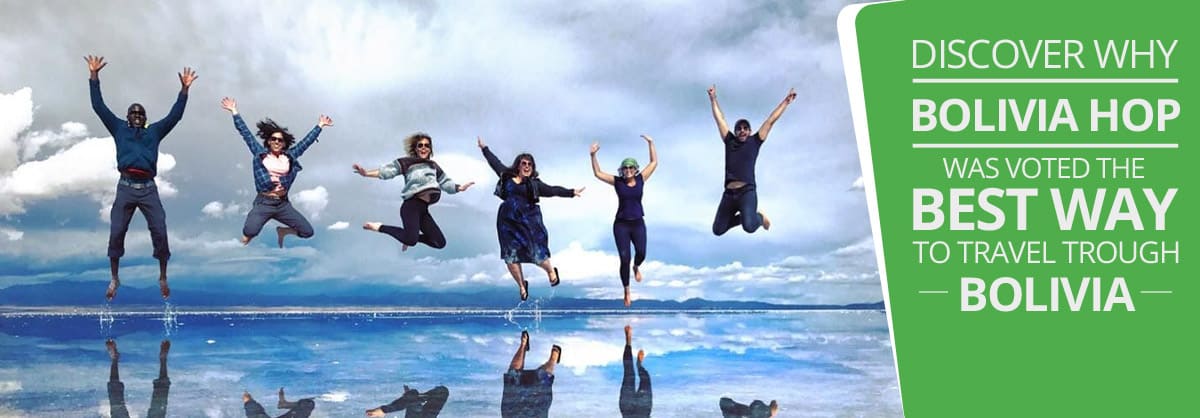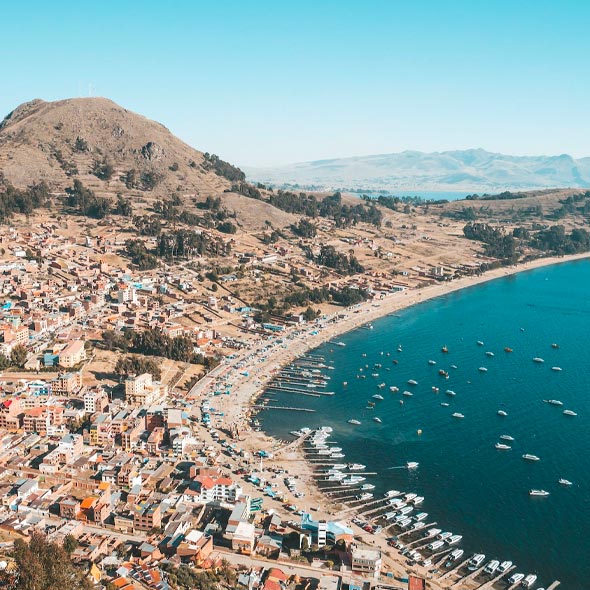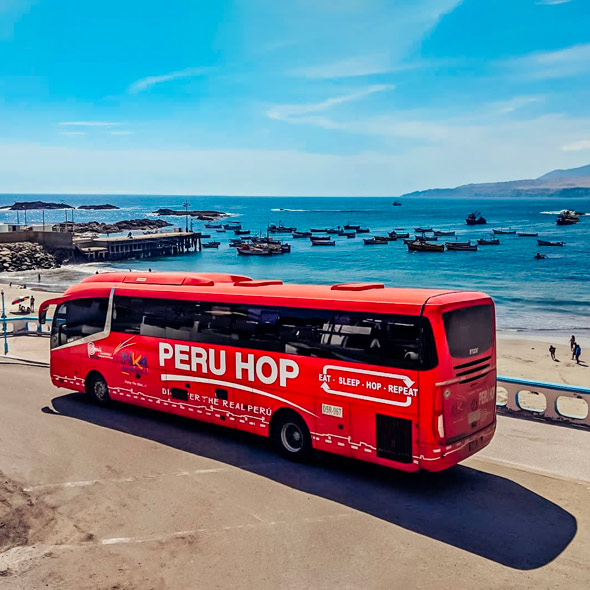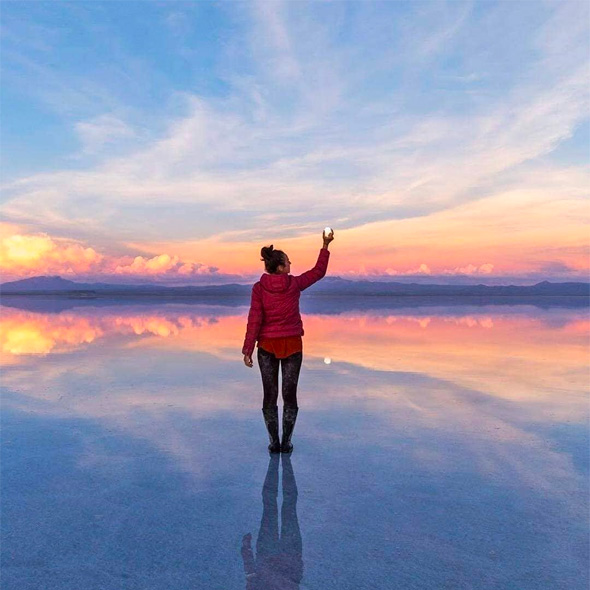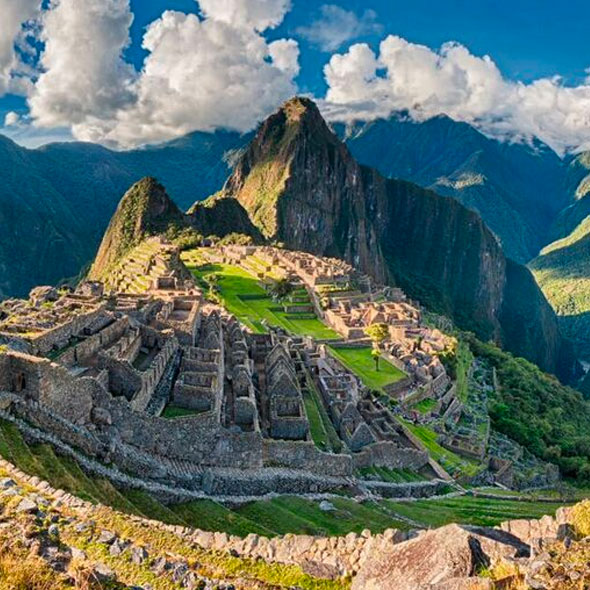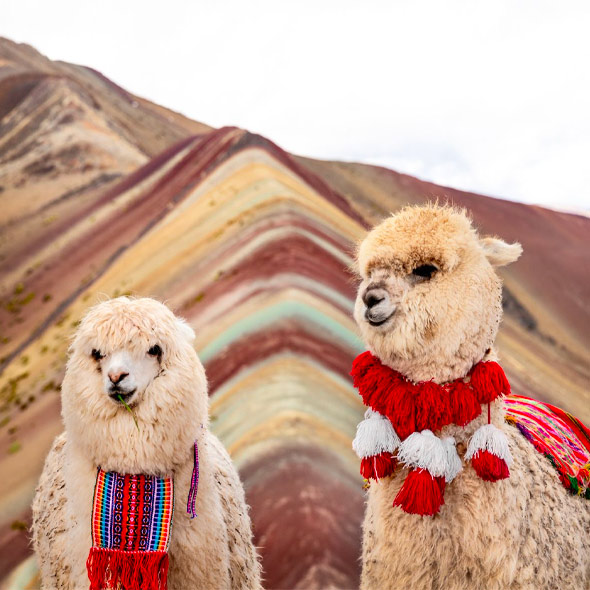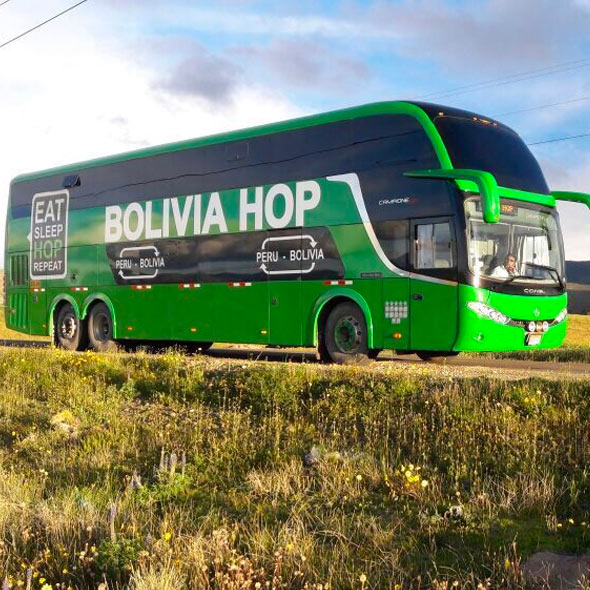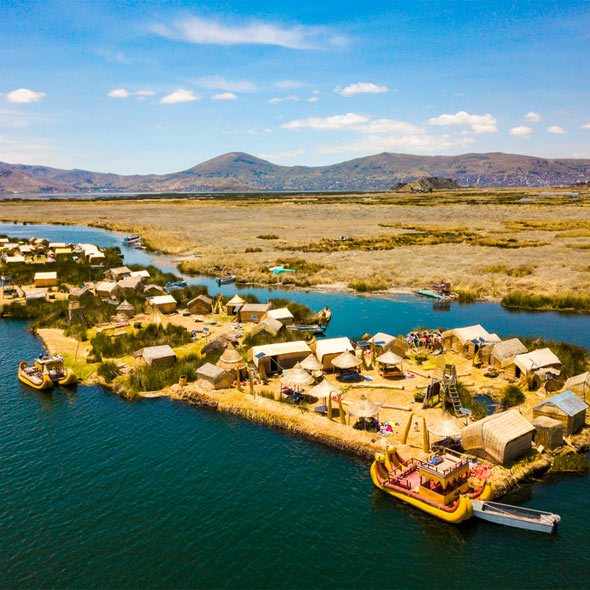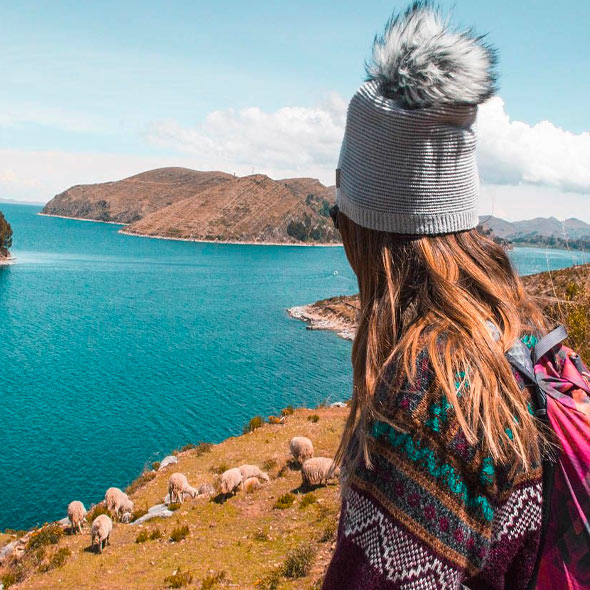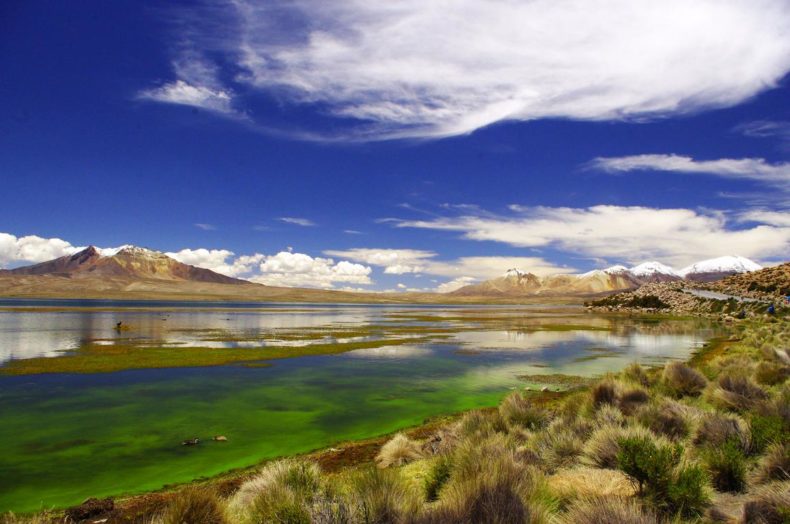
Is the drinking water in Bolivia safe?
A smart person will advise against it and will know that drinking tap water in ANY foreign country is ill-advised, not only due to the fact that bacteria happily float about waiting to give you bouts of diarrea, or worse, amoebic dysenterry, but also because the human stomach is just not designed to withstand the foreign, harmful organisms one might encounter on their journeys abroad. Remember, what a Bolivian might be able to withstand in his own country, could very well kill the Brit who comes to visit.
So if you find yourself in the category of carefree people that travel about from place to place drinking water from every tap you come across, then this is for you.
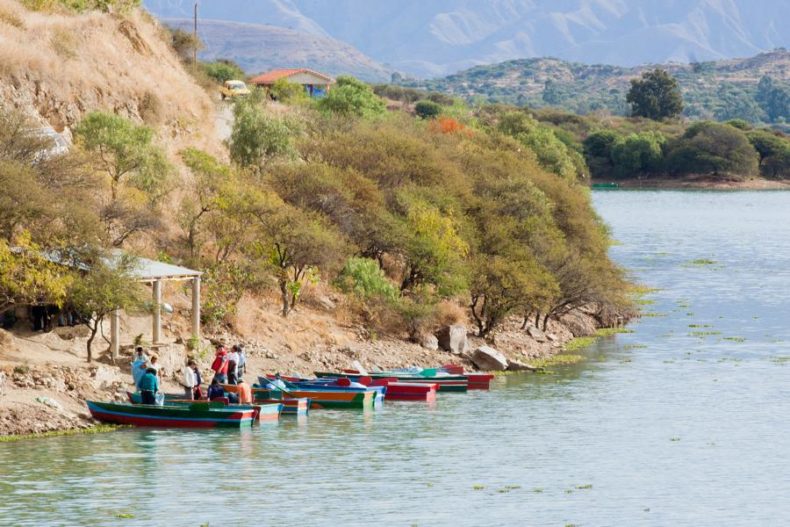
Each country treats their water through chemical purification processes that ensures clean running water in urban areas. Bolivia is no exception.
However, the treatment of water itself is not enough to ensure the water is clean enough to imbibe. Many smaller, Bolivian communities suffer gastrointestinal illnesses as a result of a lack of clean water.
Another major risk to the potency of water are the huge mining operations spread around Bolivia. The rivers that flow through these mines carry with it the residual dross from these operations, making the water that comes out of the tap in Bolivia extremely high in heavy metals. These metals pose a major health risk to anyone who drinks the water and are imposible to remove 100% with filters.
Generally speaking, tap water in Bolivia is definitely not safe for consumption – however clean it may appear – so I have put together a simple guide for the careless, I mean carefree, traveller.
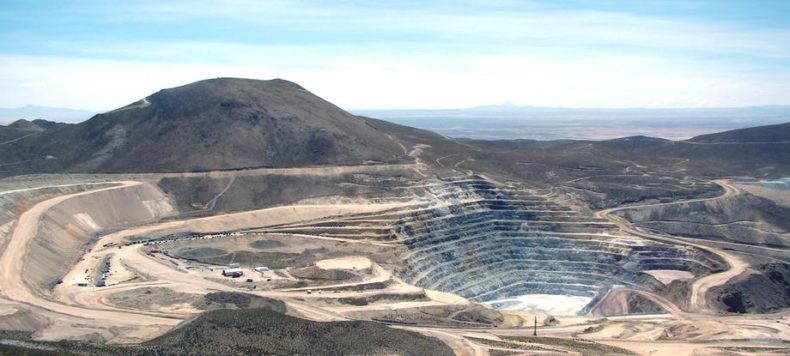
How can I treat water on my own?
There are two simple steps to follow that may avert your desire to head straight for that tap and fill your glass with all kinds of unsanitary fluids.
First of all, when the urge to drink water comes on, the best approach to take is to consider any water you may encounter contaminated and an absolute threat to your life. Once that mentality is deeply ingrained into your mind, you may proceed with the second step which is figuring out a way to treat the water so it may be potable.
The best way to treat any water, and this is for anyone travelling anywhere, is boiling it. Boiling water for 5 to 10 minutes is the surest and quickest way to kill those live bacteria floating about in the water (time needs to be extended depending on the altitude). This ties in perfectly if you are looking to drink a piping hot cup of coffee or tea on a cold Bolivian morning.
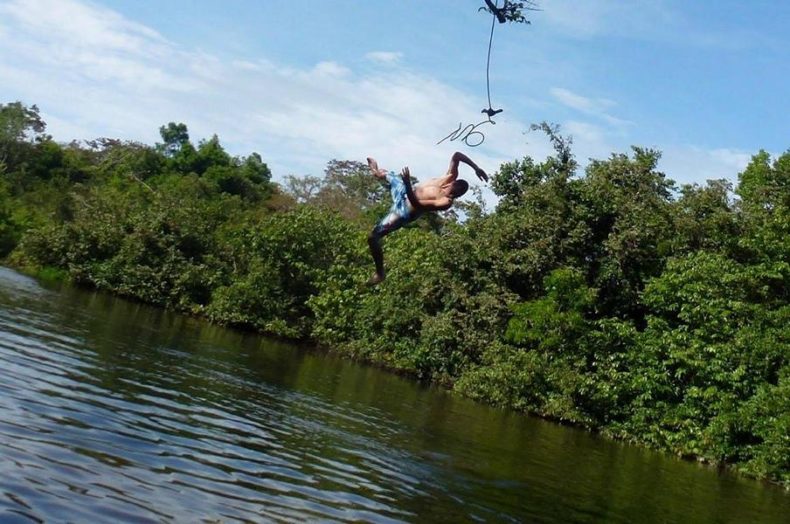
Another easy way to treat water is with bleach. Bleach kills germs effectively and, surprisingly enough, it doesn’t leave the water with a strong, bleachy flavor (perhaps this is due to the fact that city water supplies treat their water with bleach anyway). To treat it you simply apply 16 drops of bleach to a gallon (3-4 drops per litre), stir it in and let it sit for 30 minutes and voila, you got yourself enough to swim in without worrying about swallowing a bit of water. The waiting period is extremely important as the bleach needs time to kill the organisms and to fleet from the water.
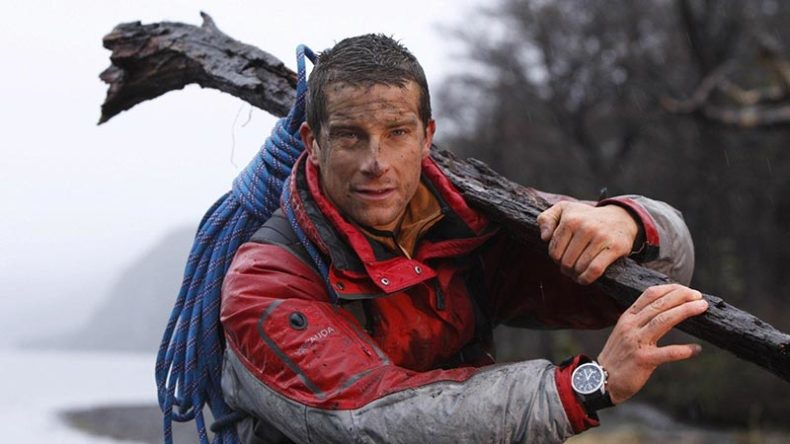 You will come across other forms of treatment that may or may not involve plastic sheets, sunlight, condensation, cups and a myriad of objects Bear Grylls would approve of. If it works for you, go for it.
You will come across other forms of treatment that may or may not involve plastic sheets, sunlight, condensation, cups and a myriad of objects Bear Grylls would approve of. If it works for you, go for it.
Please keep in mind that both the bleach and most other filters are emergency solutions. Bottled water will always be your safest option as these alternative methods have their specific flaws and cannot always remove all the remnants of the contamination.
Can I brush my teeth with tap water in Bolivia?
sadece kadin mastirbasyon boşalma videolari izle
Brazzers kalın bacak
Safari kabine
Sen ve ben porn
Hangi unlu turkun pornosu var
Asyali teyze kamyoncu porno
Since we’ve established that tap water is not safe to drink in Bolivia, it is best to steer clear of the idea of rinsing your mouth after brushing your teeth, much less gargling. What might seem like a harmless act you could get away with could result in accidental water consumption.
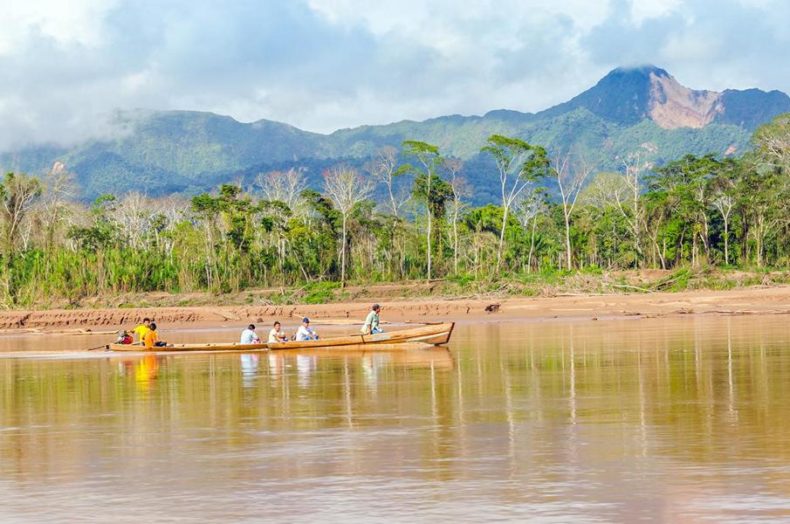
Having been made aware of the dangers that come with drinking tap water, you can imagine what such a small thing could bring about. Your safest bet would be to brush your teeth with bottled water. This may seem a bit extreme and sound much like a first world problem, but remember, as the good saying goes, an ounce of prevention is worth a pound of cure. In this case possible hospital time and basically your trip being completely ruined, or worse, cancelled.
Drinking water in Bolivia
You can easily find purified bottled water in stores throughout the country. It’s a cheap and reliable option, however it’s advised that you always check that the seal is intact as it’s not unheard of for street and store vendors to simply refill the bottles with tap water. Avoid using ice cubes in your drinks as the water source may not be reliable, and choose foods that are cooked as opposed to raw foods like salads and raw fish.
